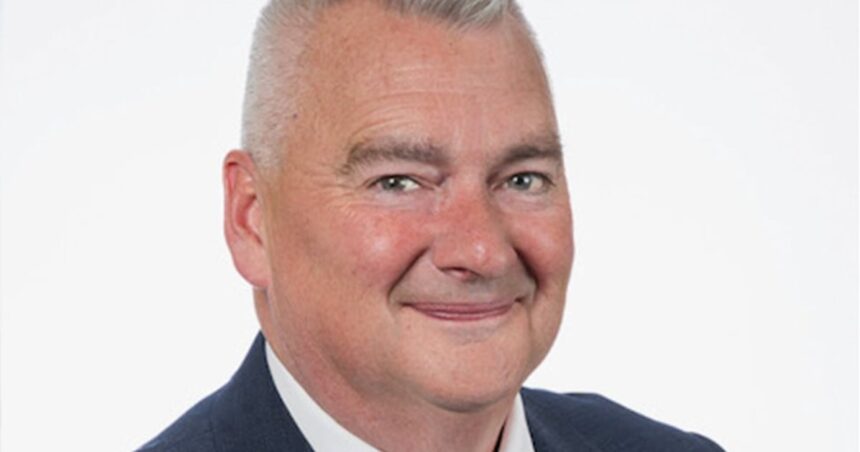In a territory where politics often mirrors the rugged landscape, Yukoners have chosen their new path forward. Mike Pemberton emerged victorious Saturday night in the Yukon Liberal leadership race, securing his position as the territory’s next premier after a tightly contested campaign that saw him edge out two rivals.
“The north faces unique challenges that demand unique solutions,” Pemberton told supporters gathered at the Kwanlin Dün Cultural Centre in Whitehorse. “Tonight isn’t about my victory—it’s about our collective journey forward.”
The 47-year-old former territorial minister garnered 58% of the final ballot votes, defeating longtime community advocate Sarah Meadows and former city councillor Thomas Kerrigan. The leadership convention drew nearly 900 party members—a remarkable turnout representing almost 2.5% of the territory’s population.
Pemberton’s ascension comes at a critical juncture for Canada’s northwestern territory. With housing costs skyrocketing by 32% since 2021 and ongoing tensions around resource development on traditional Indigenous lands, the new premier faces immediate challenges that will test his political mettle.
“I’ve knocked on hundreds of doors across this territory,” Pemberton said during his acceptance speech. “Whether in Dawson City or Watson Lake, I’ve heard the same concerns—affordability, reconciliation, and creating sustainable northern communities.”
The leadership race was triggered after Premier Sandy Silver announced her intention to step down in April, citing family reasons and the desire for renewal within the Liberal government. Silver, who led the territory since 2016, will formally transfer power next week but will remain as MLA for Klondike until the next territorial election.
Pemberton’s victory represents a generational shift in Yukon politics. As a second-generation Yukoner with mixed Indigenous ancestry, his campaign emphasized bridging traditional values with modern governance approaches. He previously served as Minister of Economic Development before stepping down to pursue the leadership.
Grand Chief Peter Johnston of the Council of Yukon First Nations expressed cautious optimism about the incoming premier. “We’ve had productive conversations with Mike during his time as minister,” Johnston said. “The real measure will be how he addresses our concerns about land claims implementation and resource management going forward.”
The leadership race revealed fissures within the territory’s political landscape. Pemberton campaigned on continuing many of Silver’s moderate policies while promising renewed focus on housing affordability and northern infrastructure development. His rivals pushed for more progressive approaches to climate policy and Indigenous reconciliation.
Political scientist Dr. Heather MacIvor from Yukon University notes the significance of the transition. “The Yukon Liberal Party has maintained power by occupying the pragmatic center of territorial politics,” MacIvor explained. “Pemberton’s challenge will be balancing the territory’s resource economy with growing environmental concerns and advancing reconciliation—all while dealing with the crushing cost of living in the north.”
The new premier inherits a territory experiencing dramatic demographic shifts. Statistics Canada reports Yukon’s population grew by 12.1% between 2016 and 2022, the fastest growth rate in the country. This influx has strained housing markets and public services in a region already challenged by geographic isolation and extreme weather.
“My first priority will be addressing the housing crisis,” Pemberton pledged. “We’ll be announcing a comprehensive strategy that includes increased development, density reforms, and partnerships with First Nations governments to unlock land for sustainable development.”
Opposition leaders were quick to respond to the leadership results. Yukon Party leader Currie Dixon congratulated Pemberton while challenging his economic vision. “Yukoners deserve a government focused on creating prosperity, not just managing decline,” Dixon said in a statement. “We look forward to holding the new premier accountable.”
NDP leader Kate White struck a more conciliatory tone, saying her party is “prepared to work collaboratively on areas of common ground while advocating for stronger climate action and truly affordable housing solutions.”
Pemberton’s rise to premier hasn’t been without controversy. During the leadership campaign, questions emerged about his previous involvement with mining interests and whether this would influence territorial resource policy. He addressed these concerns directly, pledging to implement the highest environmental standards while creating “a predictable regulatory environment that respects First Nations rights and attracts responsible investment.”
As Canada’s territories gain increasing prominence in national conversations about sovereignty, climate change, and northern development, Pemberton’s leadership will have implications beyond Yukon’s borders. The federal government has committed $4.9 billion in northern infrastructure spending over the next decade, and Pemberton will be responsible for directing these investments within the territory.
Community organizer Marian Smith, who attended the leadership convention, expressed the sentiment of many Yukoners: “We’re a small place with big challenges. The decisions our new premier makes will directly impact our daily lives in ways that people down south might not understand. That’s why tonight matters so much.”
Pemberton will be officially sworn in as Yukon’s 11th premier next Thursday in a ceremony that will include traditional Indigenous protocols. He has promised to announce his cabinet within ten days, with observers expecting significant changes to ministerial portfolios.
As the midnight sun casts long shadows across the territory this week, Yukoners are watching to see whether their new leader can navigate the complex terrain of northern politics while delivering on promises of affordability, reconciliation, and sustainable growth.






